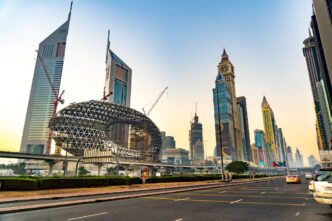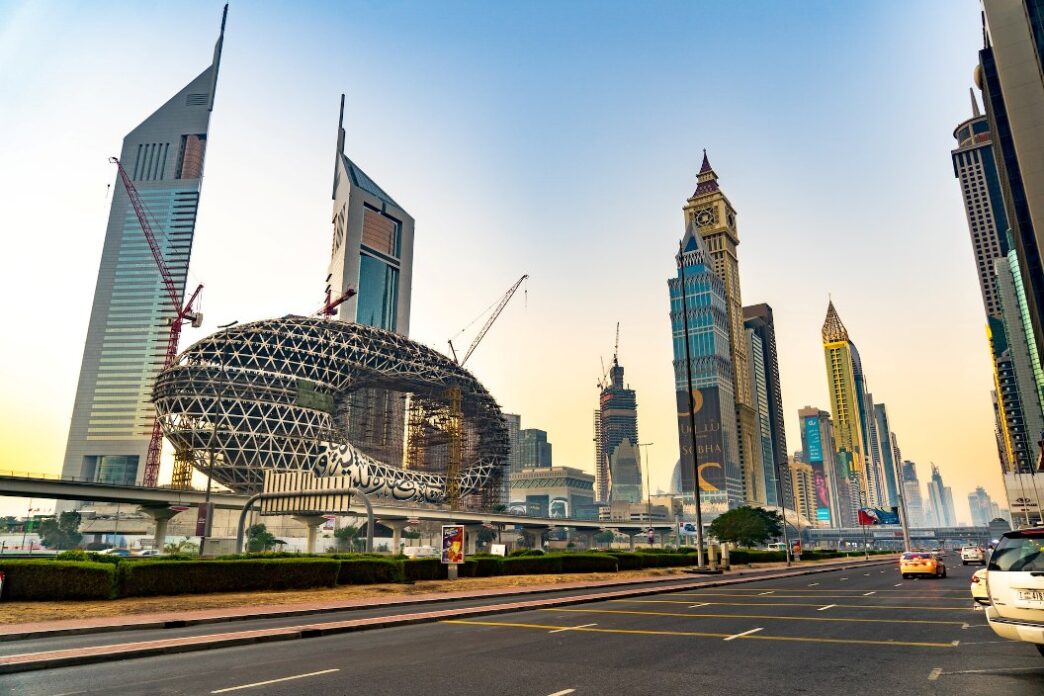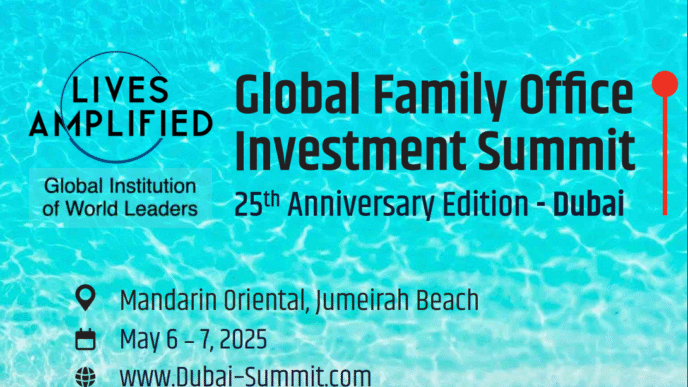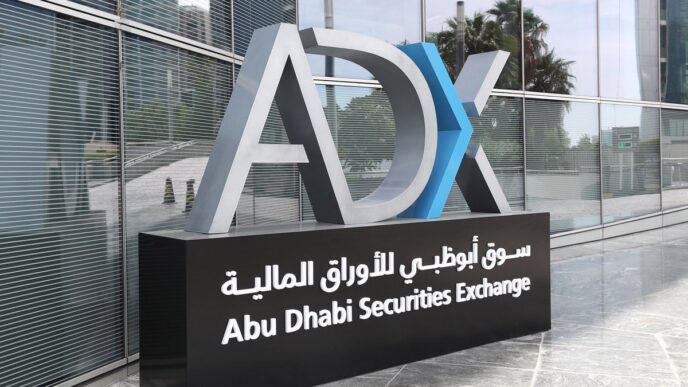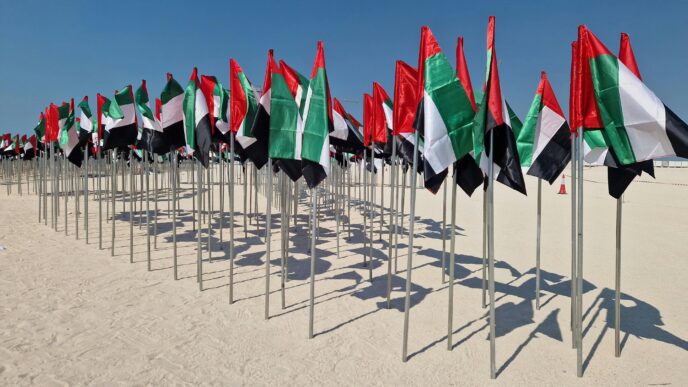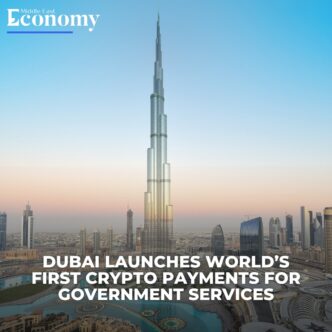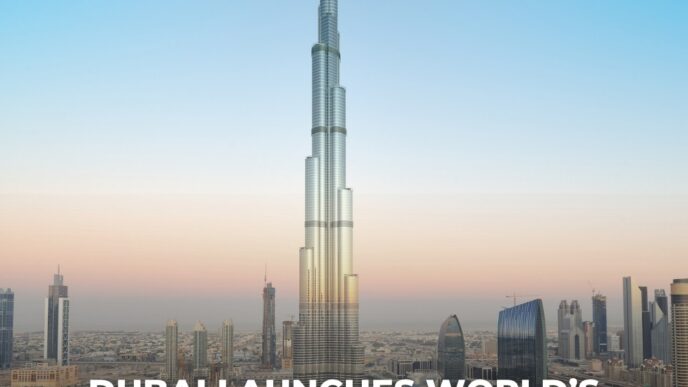The United Arab Emirates (UAE), a prominent player in the global trade landscape, is not immune to the consequences of the ongoing global trade war. As one of the world’s most important hubs for commerce, finance, and logistics, the UAE’s economy is being significantly impacted by shifting trade dynamics. Here’s how the global trade war is influencing the UAE and what the country is doing to navigate these challenges.
A Strategic Trade Hub
The UAE, particularly through its thriving ports in Dubai and Abu Dhabi, serves as a key transit point for goods flowing between Asia, Europe, and Africa. Its free-trade zones and well-established logistics infrastructure make it an attractive location for multinational corporations to set up regional headquarters and distribution centers. However, as tensions between major economies like the United States and China intensify, the UAE is facing both direct and indirect challenges.
1. Supply Chain Disruptions
The global trade war has disrupted supply chains worldwide, and the UAE has felt these effects. As global supply chains become more fragmented due to tariffs, sanctions, and changing trade relationships, the UAE’s role as a regional distribution hub has been complicated. For instance, trade between the U.S. and China, two of the UAE’s largest trading partners, has slowed. This reduction in global trade volumes means fewer goods pass through UAE ports, affecting the country’s logistics sector, which is vital to its economy.
In addition, some manufacturers in the UAE rely on raw materials from both China and the U.S. The imposition of tariffs on goods traded between these two economic giants has increased costs for these manufacturers, resulting in higher production costs and, in some cases, reduced profitability. The UAE government has been working to mitigate these effects by diversifying its trading partners and encouraging the development of local industries to reduce dependency on imports.
2. Investment Shifts
The ongoing trade war has led to shifts in global investment flows. The UAE, as an open economy with a strong financial sector, has traditionally attracted foreign direct investment (FDI). However, the uncertainty caused by trade tariffs and geopolitical tensions has made investors more cautious.
In particular, sectors such as technology, automotive, and manufacturing—areas where global supply chains and international partnerships are crucial—are seeing a slowdown in investment. Investors are increasingly looking to diversify their portfolios, considering alternative markets that are less exposed to the volatility of the trade war. To counter this, the UAE has been focusing on increasing its efforts to attract investment in non-oil sectors, such as technology, renewable energy, and fintech.
3. Oil Price Volatility
The UAE is a major oil exporter, and the price of oil is influenced by global trade dynamics. The trade war, particularly between the U.S. and China, has led to fluctuating demand for oil, especially as economic growth slows in key markets. Tariffs and trade restrictions between the U.S. and China have reduced demand for oil in some parts of the world, contributing to price volatility in global energy markets.
For the UAE, which is a key member of the Organization of the Petroleum Exporting Countries (OPEC), this has been both a challenge and an opportunity. While lower oil prices can strain government revenues, the UAE has sought to counter this by diversifying its economy, reducing reliance on oil, and investing in renewables and green technologies. Additionally, the UAE has strengthened its relationships with non-OPEC countries to stabilize oil prices and manage production quotas.
4. Rising Geopolitical Tensions
The global trade war is not only an economic issue but also a geopolitical one. As countries take sides in the ongoing conflict between the U.S. and China, tensions are also rising in other parts of the world, particularly in the Middle East. The UAE has historically maintained strong economic and political ties with the West, especially the U.S. However, its economic interests also align with China, especially in areas like infrastructure development, trade, and investments. Balancing these relationships amid the ongoing trade war is a delicate task for the UAE government.
To navigate this, the UAE has focused on strengthening its diplomatic ties with countries outside the direct sphere of influence of the U.S. and China, such as India, Russia, and the European Union. The UAE has also been expanding its involvement in multilateral organizations like the World Trade Organization (WTO) and the Gulf Cooperation Council (GCC) to secure favorable trade agreements and protect its economic interests.
5. Opportunities in Diversification
Despite the challenges posed by the global trade war, the UAE sees this period as an opportunity to diversify its economy further. The government has long recognized the need to reduce its dependence on oil, and the ongoing trade tensions have accelerated this shift. The UAE is investing heavily in areas such as artificial intelligence (AI), blockchain, fintech, renewable energy, and tourism.
The Expo 2020 Dubai, which was postponed due to the pandemic but will open in 2025, is expected to showcase the UAE’s economic diversification efforts. It will be an opportunity for the country to attract global business and demonstrate its role as a resilient and innovative hub for international trade and investment.
Conclusion
The global trade war has undoubtedly had an impact on the UAE, affecting everything from supply chains to investments, oil prices, and geopolitical stability. However, the UAE’s open economy, strategic location, and strong leadership have allowed it to weather many of these challenges. By diversifying its economy, strengthening international relationships, and maintaining its position as a key trade hub, the UAE is well-positioned to adapt to the changing global trade landscape and continue thriving in the face of uncertainty.


